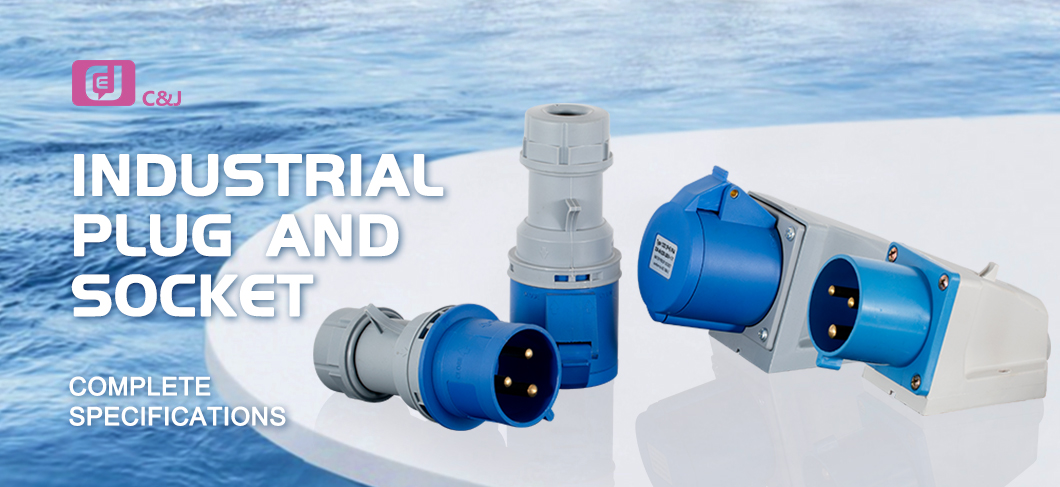Title: Discover the wonders of industrial plugs and sockets: powering the world!
introduce:
The industrial sector has diversified operations and large-scale machinery and relies heavily on the continuous supply of electricity. In this dynamic environment, industrial plug and socket systems play a vital role in ensuring uninterrupted power transmission. Engineered to withstand harsh conditions, these rugged components are critical to industries around the world. In this blog, we’ll delve into the characteristics and significance of industrial plugs and sockets, illuminating how these powerful forces are moving the world forward.
1. The evolution of industrial plugs and sockets:
The history of industrial plugs and sockets dates back to the early 20th century, when rapid industrialization spurred the need for standardized electrical connections. Over time, these systems evolved to meet the growing needs of the industry, resulting in the introduction of various types and classifications. From traditional 3-pin plug designs to complex multi-pin connectors, industrial plugs and receptacles have come a long way in versatility and adaptability.
2. Design features and robustness:
Unlike standard household plugs, industrial plugs and sockets are designed with durability and safety in mind. These components are constructed from rugged materials, such as high-grade impact-resistant plastics or heavy-duty metals, ensuring they can withstand harsh environmental conditions. Additionally, industrial sockets often have an ingress protection rating (IP rating) to protect against dust, moisture, and other external factors. These features make industrial plugs and sockets highly reliable in harsh environments such as manufacturing plants, construction sites and offshore installations.
3. Flexibility and compatibility:
One of the main advantages of industrial plug and socket systems is their flexibility and compatibility. These systems are made up of modular components that can be easily interchanged or combined to meet specific industrial requirements. With different voltages, currents and pin configurations, industries can choose the most appropriate combination of plugs and sockets for their electrical needs. Additionally, certain types of industrial plugs and sockets are designed to comply with international standards, facilitating barrier-free cross-border interconnection between machinery and equipment from different manufacturers.
4. Strengthen safety measures:
Safety is paramount in industrial environments, and industrial plugs and sockets are designed with multiple safety features to prevent accidents and electrical hazards. Many industrial plugs have features such as a grounding pin to prevent electric shock in the event of a malfunction. In addition, these systems often feature mechanical interlocking to ensure a secure connection before power is transmitted. Additionally, some industrial plugs and receptacles feature color-coded pins or keying mechanisms to prevent accidental mismatches, thus maximizing safety on the shop floor.
5. Professional application:
The diversity of industrial fields often requires specialized plugs and sockets to meet specific needs. For example, industries involving hazardous environments require explosion-proof plugs and sockets to prevent flammable materials from igniting. Likewise, industries involved in electric vehicles or renewable energy require specialized charging plugs and sockets to ensure efficient and safe power transmission. The adaptability and ability of industrial plugs and sockets to meet special applications demonstrates their importance in driving innovation and sustainable development in various fields.
6. The future of industrial plugs and sockets:
As the industry continues to evolve and adopt new technologies, industrial plugs and sockets must keep pace with these advancements. The future of industrial plugs and sockets lies in the integration of smart features, such as data communication capabilities and remote monitoring. By integrating these elements, industrial plug and socket systems can become an integral part of automated processes and help facilitate the transition to Industry 4.0. Additionally, advances in materials science and energy efficiency may help develop more compact, lighter, and greener industrial plugs and sockets in the coming years.
In summary:
The importance of industrial plugs and sockets in modern industry cannot be overstated. These rugged components provide reliable power transfer, enhanced safety and flexibility for a variety of applications. As the industry continues to evolve, innovate and respond to new challenges, industrial plug and socket systems will undoubtedly play a key role in powering the world efficiently and sustainably.
Post time: Sep-19-2023


